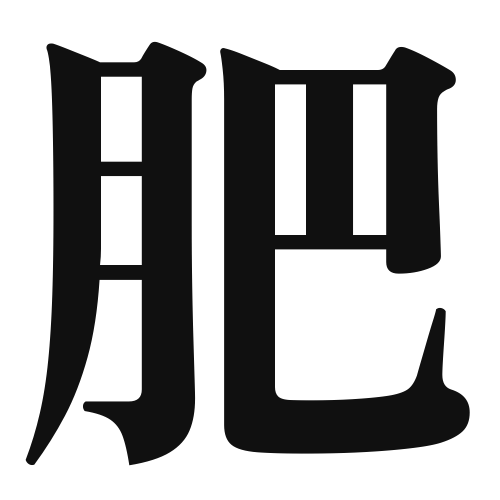1. Overview of Meaning
The kanji “肥” (pronounced “hi” or “ko”) primarily means “fat” or “fertile.” It is often associated with richness, abundance, and the idea of nourishment.
2. Formation and Radical
Formation of the Kanji: The kanji “肥” is a phonetic compound (形声文字) that combines the meaning of “fat” with a phonetic component. The left side of the character is the radical “肉” (meaning “meat” or “flesh”), which relates to the concept of fat, while the right side provides the pronunciation.
Radical: The radical for “肥” is “肉,” which is commonly associated with body parts or flesh-related meanings.
3. Examples of Usage
Common Words and Phrases: Some frequently used words that include “肥” are:
- 肥料 (ひりょう, hiryou) – fertilizer
- 肥満 (ひまん, himan) – obesity
Example Sentences in Daily Conversation:
- この土は肥えているので、植物がよく育ちます。
- (This soil is fertile, so plants grow well.)
4. Synonyms and Antonyms
Similar Kanji: A similar kanji is “豊” (pronounced “yutaka”), which means “abundant” or “rich,” but it does not specifically refer to fat.
Opposite Kanji: The antonym of “肥” is “痩” (pronounced “sou”), which means “thin” or “slim.”
5. Cultural and Historical Background
Relation to Japanese Culture: In Japanese culture, the concept of “肥” is often linked to agriculture and the importance of fertile land for growing crops. Fertility is seen as a positive trait in both land and people.
Proverbs and Idioms: One common saying is “肥えた土地は実を結ぶ” (こえたとち は みをむすぶ), which translates to “Fertile land bears fruit,” emphasizing the value of nurturing and care in achieving good results.
